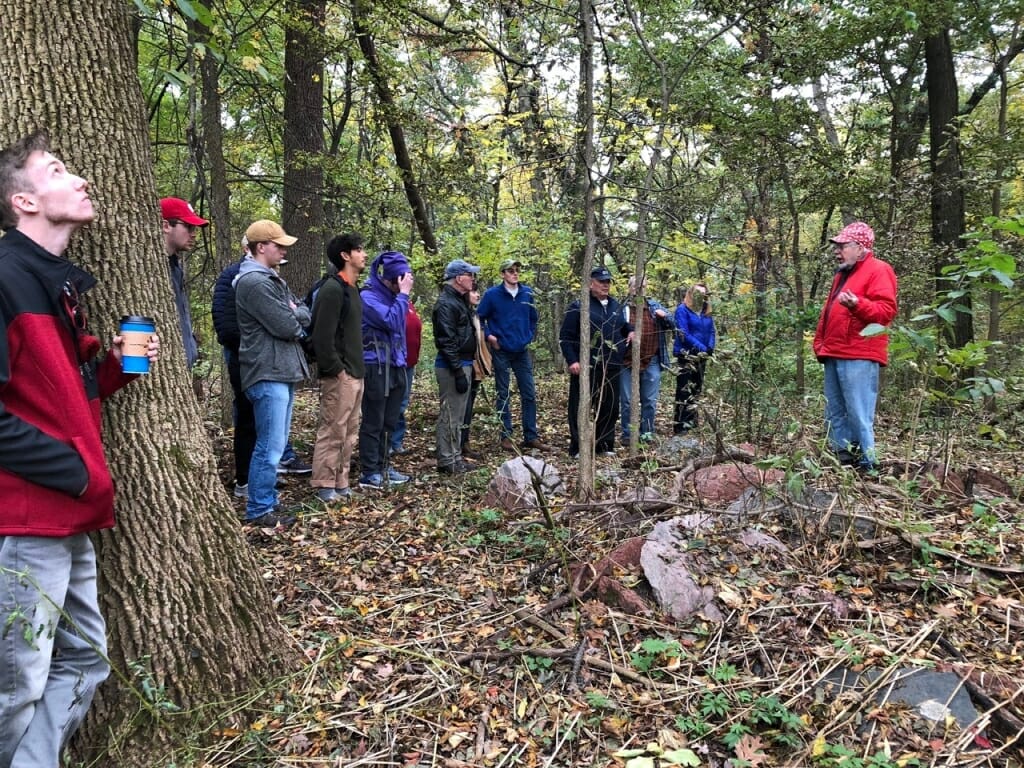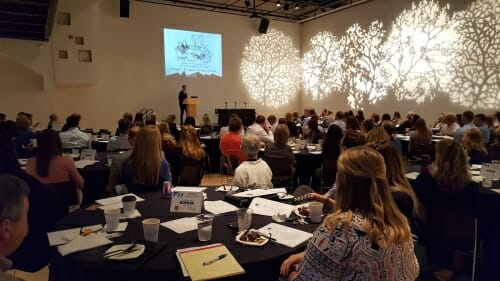Beefed-up Badger Talks brings UW-Madison to your neighborhood

Dave Mickelson, emeritus professor of geoscience, gives a talk for the Manitowoc Maritime Museum along the Ice Age National Scenic Trail. Photo courtesy of Badger Talks
A program that brings knowledge from the state’s flagship campus to localities statewide is adding dozens of experts from the University of Wisconsin–Madison Division of Extension to its Badger Talk roster.
“The idea is to share the amazing resources and discoveries from campus with the people of the state,” says Fran Puleo, who heads Badger Talks as assistant director of outreach programs at UW Connects. “We’re trying to fill needs – based in both necessity and curiosity. If people have things they are pondering, the university is a resource that can offer an enormous array of speakers.”
Host groups – schools, libraries and other venues – can select and request speakers through https://badgertalks.wisc.edu/. Sponsoring organizations pay nothing for the speaker, and most Badger Talks are free and open to the public.

Teri Engelke, an assistant dean of education, talks to the Sheboygan County Chamber. Photo courtesy of Badger Talks
More than 250 experts in fields ranging from arts and music to politics and law, from Wisconsin history to energy and environment, are already available.
With the invitation to Extension faculty and staff, Badger Talks expects a substantial rise in that number. “There are a lot of reasons to be excited about what Extension brings to our program,” Puleo says. “For one thing, our Extension experts are located around the state, which reduces travel time and expense. More important, they are already involved in outreach, so we’re just helping them to do more of what they do best.”
Working through local testing programs, Extension Badger Talker Kevin Masarik has given tens of thousands of well owners expert advice on managing their household water supply. Results from the local programs, he notes, also help paint a detailed picture of water quality statewide. Masarik will cover water quality and nitrates in private wells and Wisconsin groundwater.
Since the UW–Madison speaker’s bureau was reincarnated as Badger Talks, the effort has gained momentum, Puleo says. “We expect to complete more than 200 talks in 45 counties this calendar year, up from 33 counties last year. This is a focus area for Chancellor [Rebecca] Blank, and it’s a natural extension of campus efforts to be responsible to our citizens.”
Other new Badger Talkers include:
- Hilary Dugan, assistant professor of limnology, who discusses the environmental implications of road salt. She will focus on which lakes are at risk, and how to prevent further damage.
- Robert Bohanan, outreach program manager, Wisscience, will discuss nearly 15 years of research collaboration with K-12 teachers and students. He will explore what the ecology and behavior of dragonflies says about the ecology of our neighborhoods.
- Samatha Baruah, associate director, teacher education center, will describe informal leadership: How to get things done without having direct reports.
- Steve Barczi, professor of geriatrics and sleep medicine, discusses the principles of sleep, health consequences of impaired sleep and strategies for optimizing sleep.
Upcoming public talks are listed here.
Tags: communications, outreach
